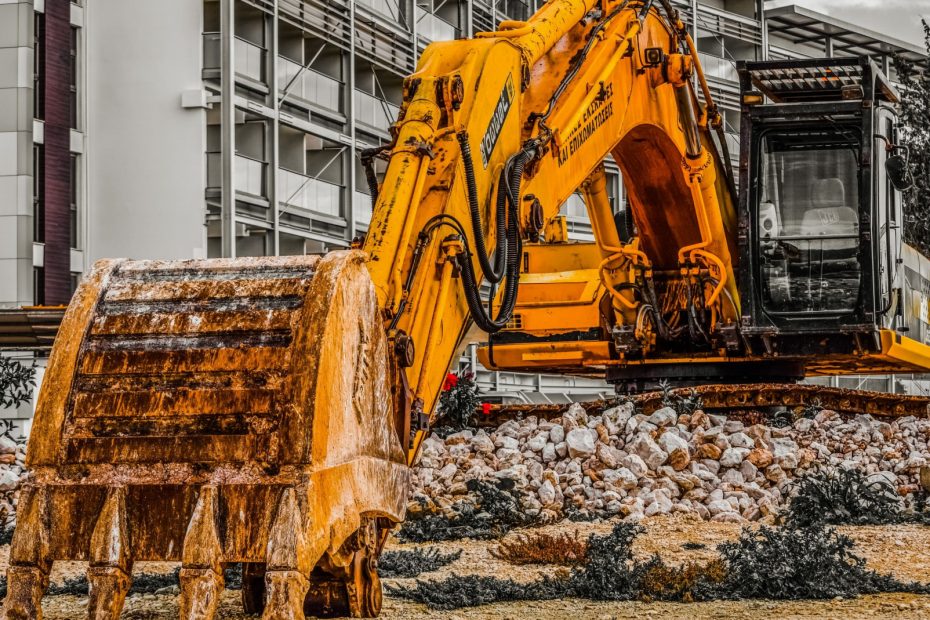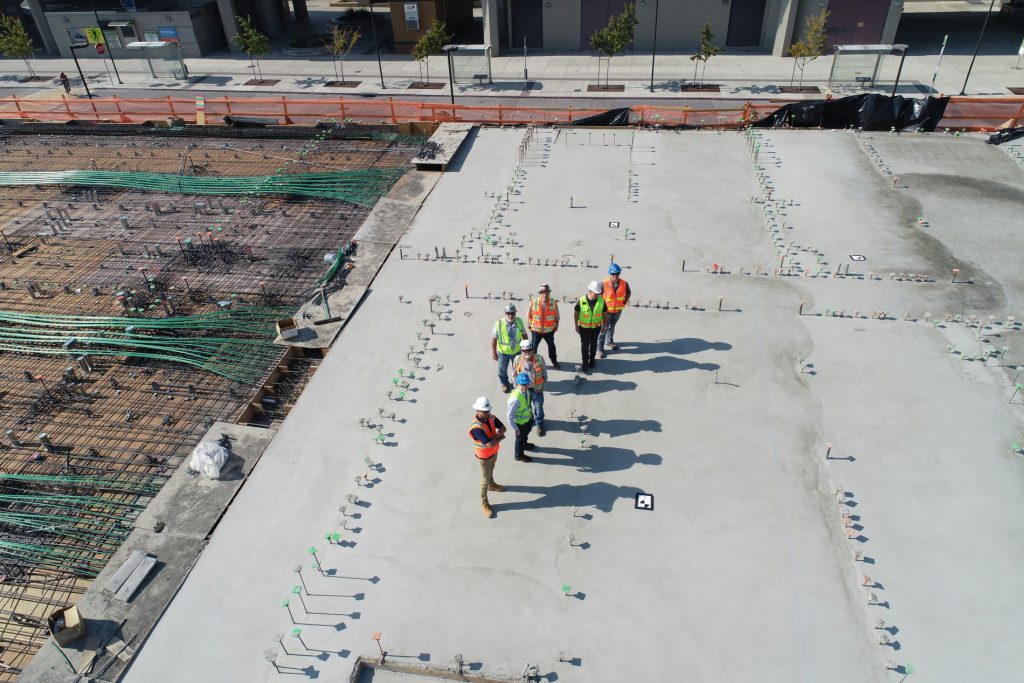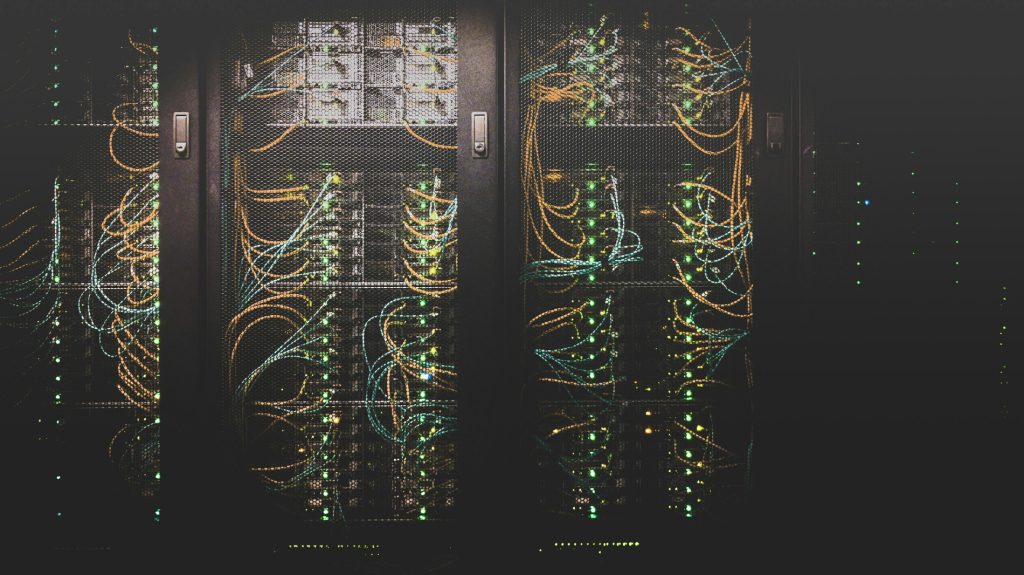By utilising technology, the industry can reduce the environmental impact of large-scale projects.
It seems as if the world is experiencing a paradigm shift almost every day. A technological revolution has revolutionised the world and has changed the daily life of all people. Technology advances and changes everything, and humans are no exception. We would be in chaos and might even become non-entities if we detach from technology. With the spread of technology, the majority of the industry has moved from manual to fully automated processes. To stay ahead of the curve, the construction industry cannot turn its back on the new era of innovation.
Construction Technology: What Is It?
Construction technology is the use of innovative tools, machinery, modifications, software, etc. in the field during construction to advance field construction methods, including semi-automated and automated equipment.
This can be extended further by including preconstruction technology such as online bid boards, bid management apps, and digital takeoff tools.
The development of construction technologies is accelerating at a breakneck pace today. In comparison to what might have seemed futuristic 10, or 20 years ago, today’s technology includes connected equipment, telematics, mobile apps, autonomous heavy equipment, drones, robots, augmented reality and 3D printed buildings being deployed on sites worldwide.
The transition to the new technology is improving the environmental impact
Technological progress is shifting away from traditional methods to reduce carbon emissions, which are key factors in climate change. Technological advancements allow large-scale projects to be carried out while also taking into account climate change impacts.
In the past, more waste would have been produced on sites. Among the advantages of technological advancement is that it helps industries reduce, reuse, and recycle materials, which reduces carbon emissions by preventing waste materials from being burned.

Custom software and applications to improve large-scale projects
Managing minor construction projects manually from planning to execution is possible, but executing large-scale projects can prove challenging. The process would be inefficient without technology. Consequently, companies invest a lot of money in developing internal software and applications so that they can coordinate projects. The applications are created based on how the project will be managed from pre-construction, scheduling, soil testing, designing, material procurement, etc. Through such applications, companies and customers can track what is happening with their construction projects in a seamless manner. This leads to a greater level of transparency.
Projects improved by mobile technologies
Constructing companies are increasingly using mobile technologies and apps to oversee the process and maintain it flawlessly. By collecting and transmitting real-time data through mobile devices, the job site and project management team can both make changes, if necessary. It allows users to submit time cards, expense reports, work records and other documents, thereby saving a great deal of time when entering data.

The primary use of mobile apps in project management is to facilitate communication and collaboration from the project site to the office. It facilitates the exchange of information faster and the implementation of plans.
Prefabrication becomes more prevalent
Adapting to technology has brought an eco-friendly dimension to the construction industry. Building components are prefabricated offsite and installed on-site in prefabrication construction. The system allows companies to build instant homes, factories, hospitals, etc., and remove them once the need is fulfilled. Commercial and residential construction using prefabricated materials has become increasingly popular, particularly for those looking to expand their homes or offices. As compared to traditional construction, it is much more affordable.
The benefits of modular and pre-fabrication construction are:
- Buildings are produced in less time – up to 90% faster than conventional methods
- Better construction quality management
- Improves overall safety and security
- Up to 80% less waste and more products recycled for future use
- Reduces transport, labour and site preliminaries by around 80%
The power of virtual reality
Customers are now able to envision what their future homes will look like using virtual reality, which has been a game-changer in the industry. They can therefore pre-plan their home interiors and alter whatever they want before construction begins.

Several positive aspects can be attributed to virtual reality. First and foremost, it makes choosing a property easier for customers. Using virtual reality, you can see the place from every angle. Walking through every feature of a property, from the placement of furniture, lighting, balcony view, etc., is a great experience. Even before the property is built, technology provides real-time experience.
Additionally, it allows customers to customize their properties, bringing a better understanding between them and the builder. A builder who can personalize a design to meet a client’s needs along with providing them with suggestions and recommendations can create a unique experience for them.
How does blockchain improve the construction process?
Another disruptive technology that can impact the construction industry is blockchain. Transparency can be achieved between the two parties without the involvement of intermediaries. Essentially, it involves sharing databases and processes. By integrating databases in real-time, it uses artificial intelligence and the Internet of things to process runs. For instance, the same document can be used, edited & saved by two people simultaneously.
A major benefit of blockchain is eliminating intermediaries, reducing costs, time and clutter by establishing a direct link between businesses and services.
The Artificial Intelligence Revolution
By learning and preventing last-minute glitches, artificial intelligence helps the industry solve many problems. AI can be used during the pre-construction stage to ensure a seamless construction process and avoid frequent plan changes. The flow of work can be kept undisturbed by integrating AI with finance, marketing, and procurement.
Through the integration of AI chatbots, customers can directly communicate with builders. The builders can answer multiple customer queries. As a result of this process, builders can understand the concerns of customers and adapt accordingly.
Technology in construction makes the job site safer
Technology advancements in construction also improve safety. Remote monitoring is easier with drones and mobile devices. Hazards can be reported sooner by workers. These dangers can be dealt with efficiently by providing instructions on how to deal with them via these devices.
Meaning your employees can be warned about the potential dangers using new technology. It used to be that helmets were only for protecting your head, but they’re now becoming wearable technology. It is possible to provide early warnings about hazards through the use of special lenses and augmented reality software. It is also possible to use wearable tech to keep track of how much time an employee has spent on the job site and if they have been overworked. The importance of taking breaks and resting is unquestionable. Fatigued workers are more likely to make errors that lead to injuries.

The job site is being revolutionised
As a result of new technology, job sites are becoming more connected, safer, efficient, eco-friendly and profitable. With technology, you can keep an eye on productivity with drones, and clients can even be informed of when jobs will be completed. Not forgetting you have the option of keeping clients up to date with live construction drawings to keep them informed.
If you enjoyed this content, please reshare it on social media. And follow us for more interesting content. If there is any specific content topics that you would like us to discuss please email contactus@v7recruitment.com




